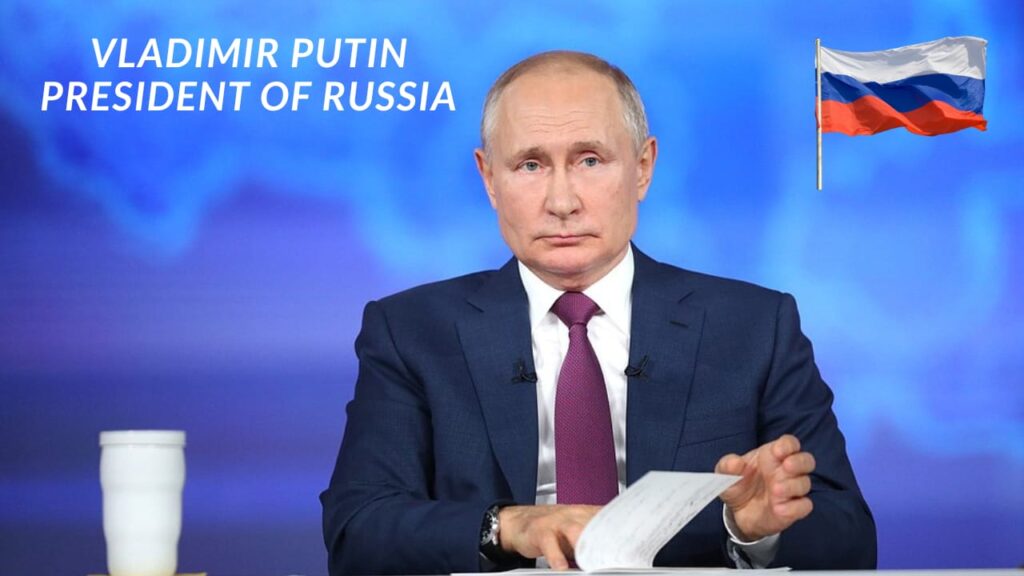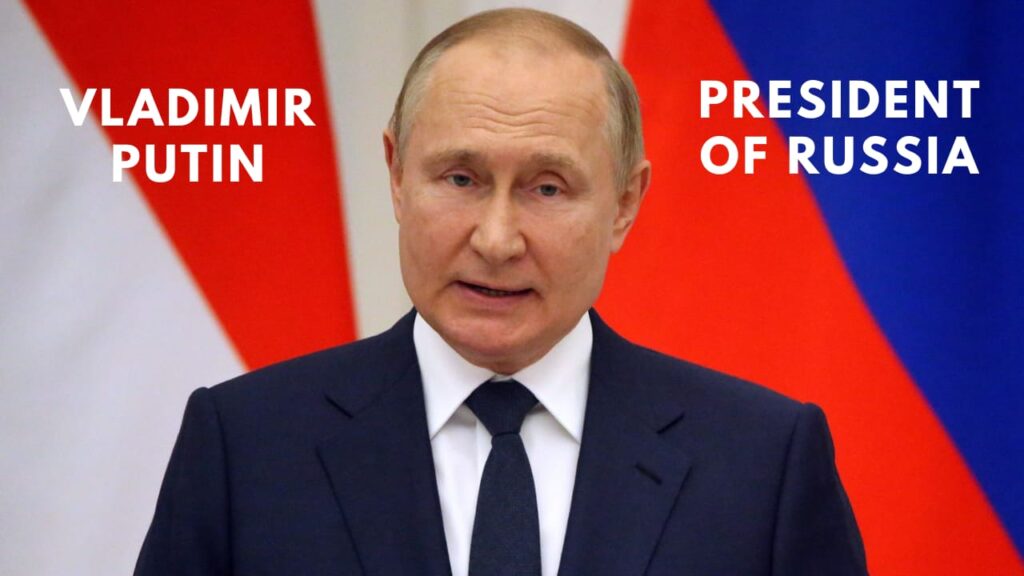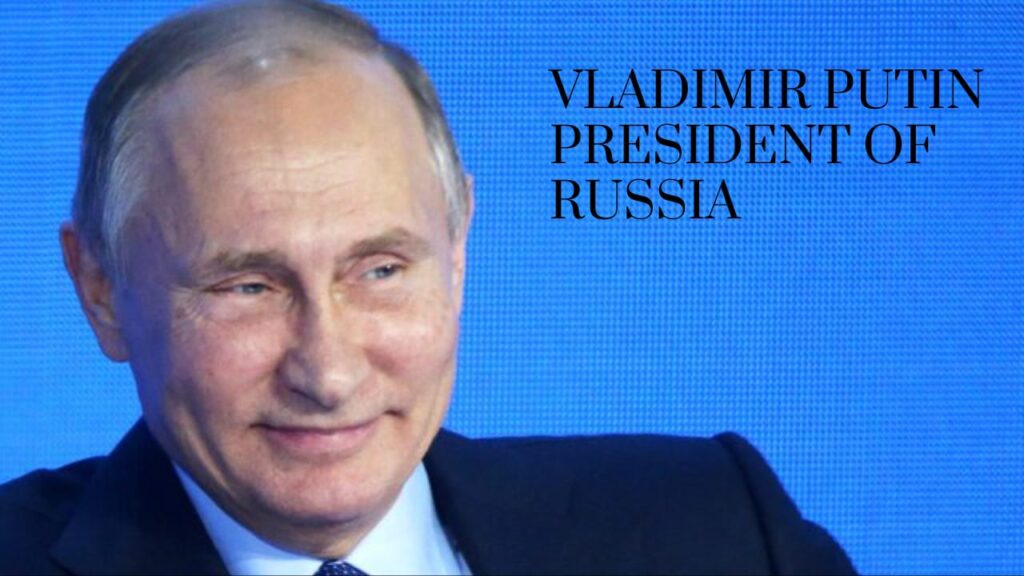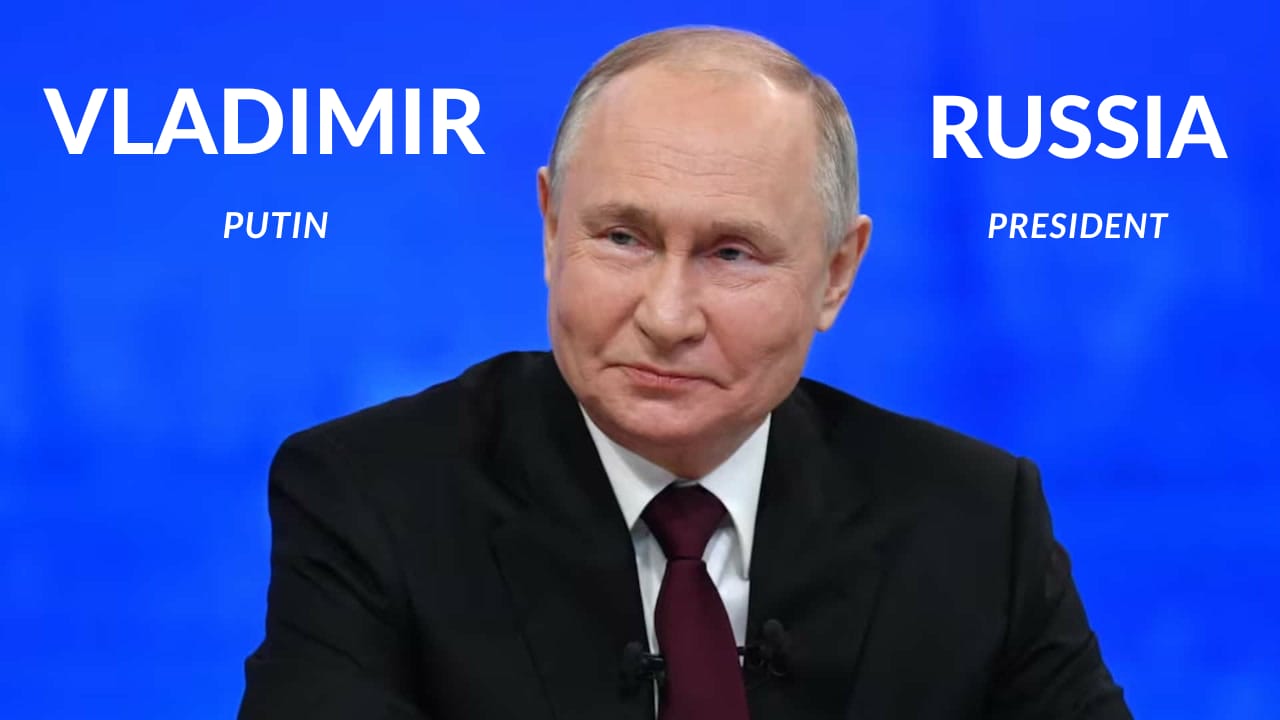Discover the latest insights on Vladimir Putin President of Russia. This informative guide provides expert analysis.
Wondering what drives Vladimir Putin, Russia’s President? Born in Leningrad, now St. Petersburg, his early life and education set the stage for his political career. Learn about his rise to power and his impact on Russia and the world.
Vladimir Putin, Russia’s President, has been a major player in global politics for years. His journey from the KGB to President is intriguing. Discover how his experiences shaped his leadership and policies, influencing international relations.

Introduction to Vladimir Putin’s Life and Career
To understand Vladimir Putin’s political views and decisions, knowing his life before presidency is key. His early life, education, and KGB career all contributed to his rise to power.
Key Takeaways
- Vladimir Putin is the current President of Russia, with a long history in politics.
- Putin’s early life and education played a significant role in shaping his leadership style.
- His career in the KGB influenced his approach to international relations and policy-making.
- As the Russian President, Putin has been a key figure in global politics for decades.
- His presidency has had a profound impact on Russia and the world, making him a subject of interest for many.
- Staying up-to-date with the latest information on Vladimir Putin, President of Russia, is crucial for understanding global events and politics.
Exploring Vladimir Putin’s life and career offers a deeper understanding of the Russian President and his global impact. This knowledge helps you stay informed about current events and grasp the complex geopolitical landscape.
Understanding Vladimir Putin’s Rise to Power
Vladimir Putin’s path to the top in Russian politics is intriguing. It shows his skill in strategic moves and taking risks. As a leader in the Kremlin, Putin has mastered navigating Russian politics. He has formed key alliances and made crucial decisions, leading him to the presidency.
Putin’s start in the KGB was crucial for his success. His time there taught him about loyalty, discipline, and strategic thinking. These skills helped him transition into politics. He became known for being a shrewd and effective leader.

Key Factors in Putin’s Rise
- Appointment as Prime Minister: Putin’s role as Prime Minister in 1999 was a key moment. It allowed him to show his leadership and build a strong reputation.
- Relationships with influential figures: Putin’s connections with powerful people in Russian politics, like Boris Yeltsin, helped his career.
- Strategic decision-making: Putin’s bold decisions and strategic thinking have kept him ahead in Russian politics.
As the Kremlin leader, Putin has shaped Russian politics and policy. His experience and skills have helped him stay in power and push his agenda. Putin’s intelligence, strategic thinking, and leadership have made him a significant global figure.
Vladimir Putin President of Russia: Key Leadership Characteristics
Vladimir Putin’s leadership style is rooted in his vladimir putin politics and putin government roles. As Russia’s President, he has kept power and pushed his vision for the country. He does this through smart decisions and focusing on key policies.
Some key traits of Putin’s leadership include:
- Strong centralized control, with a focus on maintaining stability and order
- An emphasis on putin government initiatives, such as economic development and social programs
- A commitment to protecting Russia’s interests and sovereignty, both domestically and internationally
Putin’s approach to vladimir putin politics comes from his KGB background and political experience. His leadership is seen as pragmatic and calculating. He aims to reach his goals through strategic planning and negotiation.
Overall, Putin’s leadership has greatly influenced Russia’s global standing. It will likely continue to shape the country’s future.
The Structure of Putin’s Government
The putin administration has seen big changes since Vladimir Putin started leading. As the moscow leader, Putin has made many reforms. He has worked to make the presidency stronger and more powerful.
Putin has also made changes to the government’s structure. He has more control over the government and its parts. This is thanks to recent changes in the constitution.
These changes have given Putin more power. For example, he can now pick and fire the prime minister and other important people. This has made the government more centralized, with Putin having a big say in decisions.
Key Administrative Roles
The government also has important roles like the prime minister and the Duma. The prime minister handles the daily work of the government. The Duma is the country’s lawmaking body.
The putin administration has made sure these roles fit with Putin’s plans. This helps the government work together smoothly.
Constitutional Amendments
Recent changes to the constitution have also changed the government’s setup. These changes have made the presidency stronger and given Putin more power. At the same time, they have limited the roles of other parts of government.
As the moscow leader, Putin has used these changes to gain more control. He wants the government to follow his vision and goals.
In summary, Putin’s government is set up to give the president a lot of power. The putin administration has focused on making the presidency stronger. It has also made sure the government’s parts work together with Putin’s vision.

Putin’s Domestic Policy Approach
Vladimir Putin, as the russian head of state, has worked on many domestic policies. He aims to better the lives of russian citizens. To do this, he has focused on economic growth and reducing poverty.
Putin has also worked on social welfare. As the russian president, he has launched programs to help low-income families. These efforts have made healthcare and education more accessible, reducing poverty and inequality.
- Increased funding for healthcare and education
- Implementation of social welfare programs, such as pension and unemployment benefits
- Investment in infrastructure, such as housing and transportation
Putin’s efforts have aimed to improve the lives of russian citizens. He has implemented many policies and initiatives. These efforts have shown significant progress in recent years.

Economic Strategies Under Putin’s Administration
As vladimir putin president of russia, Putin has put in place many economic plans. The putin government has used Russia’s natural resources like oil and gas to boost the economy. This move has helped Russia grow and influence the global energy market.
Putin’s economic plans are based on Russia’s special role in the world economy. By focusing on energy exports, Russia has kept its economy stable. This is true even when global energy prices change.
- Energy policy: Russia has invested a lot in its energy sector. It aims to increase oil and gas production and exports.
- Economic reforms: The putin government has made several economic reforms. These include steps to cut down on bureaucracy and attract more foreign investment.
- International trade relations: Russia wants to improve its trade ties with other countries. This includes those in the European Union and Asia.
The economic strategies under Putin have greatly impacted Russia’s economy. As vladimir putin president of russia, he continues to shape the country’s economic future.
Military and Defense Development
The kremlin leader has played a key role in Russia’s military and defense plans. Under the russian president, the country has seen major changes. New weapons and technologies have been developed to boost Russia’s military strength.
Russia’s defense strategy has changed under Putin. It now focuses on protecting the country’s interests and freedom. This includes standing strong against NATO and other world powers. The russian president also values military partnerships, mainly in the Asia-Pacific area.
Some important parts of Russia’s military and defense efforts under Putin are:
- Modernization of the military: This includes creating new weapons, like hypersonic missiles and advanced submarines.
- Increased military spending: The kremlin leader has put a lot of money into updating the military.
- Enhanced military cooperation: Russia has made its military ties stronger with countries like China and India.

Putin’s Foreign Policy Framework
Vladimir Putin’s foreign policy is a key part of his presidency. He wants Russia to play a big role in world affairs. The putin administration works on building partnerships and using diplomacy to show Russia’s strength.
In the world of vladimir putin politics, his foreign policy is a mix. He works with other countries but also competes with them.
Key Relationships
Putin focuses on important relationships with Western, Asian, and Middle Eastern countries. These ties are vital for Russia’s economy and safety. Key parts of Putin’s foreign policy include:
- Building strong partnerships with China and India
- Talking and working with Western countries like the United States and Europe
- Increasing Russia’s role in the Middle East through diplomacy and involvement in conflicts
The putin administration also uses international groups like the United Nations and the G20 to promote Russia’s interests. Putin tries to make Russia a key player in global politics. This shows his approach to vladimir putin politics.
Media Control and Information Policy
The russian head of state has taken a strong stance on media control and information policy. This has big effects on the country’s politics. State media has grown, and the internet rules have gotten stricter. This means the government has more say in what people see and hear.
It’s key to know how the russian head of state controls media. The putin government uses many ways, including:
- State media operations: The government has put a lot of money into state media. These outlets spread official news and support the government’s views.
- Internet regulations: The russian head of state has made laws to control online content. These laws aim to stop information that could be seen as a threat to the country.
These actions have greatly affected free speech in Russia. The putin government says these steps are needed for safety and order. But critics say they silence dissent and block opposition voices.

In summary, the russian head of state’s media control and information policy have big impacts. They affect the country’s politics and its relations with the world. Understanding these dynamics is crucial when thinking about media’s role in shaping opinions.
Opposition Management Strategies
As the vladimir putin president of russia, Putin has used many strategies to handle opposition. He has made laws to control how opposition groups act. For example, he passed laws that limit protests and demonstrations.
This makes it hard for opposition groups to get people to join them. Putin also controls the media to stop opposition messages from getting out. He uses state-owned media and rules to limit independent media.
Putin has also arrested and charged opposition leaders and activists. They are accused of things like stirring up trouble or breaking laws about public gatherings. These actions are meant to scare and quiet opposition voices.
Some of the main ways Putin deals with opposition include:
- Regulating opposition activity through laws and regulations
- Controlling the media and limiting the spread of opposition messages
- Targeting opposition leaders and activists with legal measures
Putin’s Influence on Russian Society
As the moscow leader, Putin has deeply influenced Russian society. He has shaped the country’s culture, social life, and economy. Under Putin, Russia has seen a rise in national pride and a focus on traditional values.
This has led to a revival of cultural symbols, like the Russian Orthodox Church. There’s also a push for patriotic education. These efforts have made many Russians feel more connected to their heritage.
The putin administration has also worked on improving living standards. They’ve launched programs to support families and boost healthcare and education access. These efforts have led to better lives for many Russians, with more economic chances and a sense of security.
Cultural Revival
Putin aims to highlight a unique Russian identity, away from Western influences. He’s brought back traditional Russian arts like literature, music, and dance. The Russian language and culture are also being promoted worldwide.
Putin’s team is dedicated to preserving Russia’s history. They’ve restored famous landmarks and opened new museums and cultural spots. This effort is to keep Russia’s rich heritage alive.
Social and Economic Programs
The putin administration has launched many social and economic projects. These aim to tackle Russia’s demographic issues and enhance living conditions. They’ve introduced support for families, like maternity benefits and childcare help.
There are also plans to boost rural economies. Putin’s team has worked to improve healthcare and education. New medical facilities and schools have been built to help more people.
Recent Developments and Future Trajectory
Vladimir Putin, the Russian head of state, is changing the country’s politics and economy. He has made big changes in Russia’s politics and economy. The government has started new policies to help the economy grow and stay stable.
These policies include investing in infrastructure and energy projects. Putin’s politics have also been affected by tensions with Western countries. Yet, Putin remains a key player in Russian politics, holding a lot of power.
He has been important in setting Russia’s foreign policy and its relations with other countries. The future of Putin’s presidency will depend on many things. These include economic issues, population changes, and international tensions.
The Russian government must balance economic growth with solving social and economic problems. Putin’s politics will also face challenges in dealing with other countries, including Western powers.
- Economic pressures, including the need to diversify the economy and reduce dependence on energy exports
- Demographic challenges, including a declining population and aging workforce
- Geopolitical tensions, including relations with Western powers and other nations
Despite these challenges, Putin remains a strong leader in Russian politics. As the head of state, he will keep shaping Russia’s politics, economy, and foreign policy.

Conclusion
Vladimir Putin’s presidency has deeply influenced Russia and its global role. He has strengthened Russia’s military and boosted its influence worldwide. Yet, his authoritarian ways and human rights issues have sparked international criticism.
Despite this, many see him as a leader who brought stability and pride back to Russia after the 1990s’ turmoil. Putin’s presidency is a mix of successes and controversies. His drive to make Russia powerful has shaped his legacy.
As Russia moves forward, understanding Putin’s government and decisions is key. This knowledge helps in predicting Russia’s future and its global impact. Putin’s leadership has left a lasting mark on both his country and the world.
FAQ
Who is Vladimir Putin?
Vladimir Putin is the President of Russia. He has been a key figure in Russia since the late 1990s. He served as President from 2000 to 2008 and again from 2012 to now.
What was Putin’s early life and career like?
Putin was born in Leningrad (now St. Petersburg) in 1952. He studied law at Leningrad State University. Then, he joined the KGB, working as an intelligence officer.
After the Soviet Union fell, Putin entered politics. He quickly rose to become Prime Minister and then President of Russia.
How did Putin rise to power in Russia?
Putin became Prime Minister in 1999. President Boris Yeltsin resigned, letting Putin take over. Putin then made political and economic changes to strengthen his power.
He also suppressed opposition and made the executive branch stronger.
What are some of the key characteristics of Putin’s leadership style?
Putin is seen as a strong, authoritarian leader. He has focused on national security and geopolitical interests. He’s also willing to use force to get what he wants.
How is the Russian government structured under Putin?
Putin’s government has a strong presidency. The president has a lot of power. Putin has also made changes to the constitution to help him control more.
What are some of Putin’s key domestic policy priorities?
Putin has focused on economic reforms and improving infrastructure. He’s also worked on social welfare and the military. He wants to boost Russia’s population and national pride.
How has Putin approached foreign policy and Russia’s international relations?
Putin wants Russia to be a major world player. He’s formed alliances with countries like China. He’s also been involved in conflicts in the Middle East.
His goal is to protect Russia’s interests and challenge the global order.
What are some of the key criticisms and concerns about Putin’s rule?
Critics say Putin suppresses opposition and controls the media. They’re also worried about human rights. There are concerns about democracy and Putin’s power.
What is the current state of Russia under Putin, and what might the future hold?
Russia faces many challenges under Putin. The economy, society, and geopolitics are all tough. Putin’s rule is stable, but there’s debate about his future and Russia’s direction.
